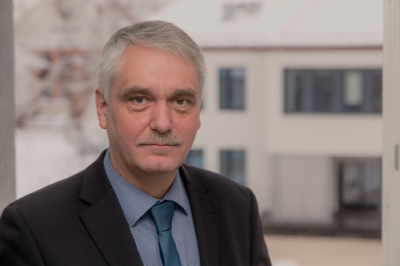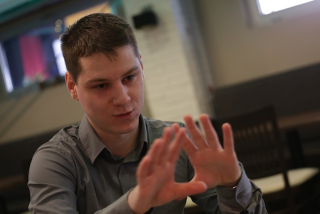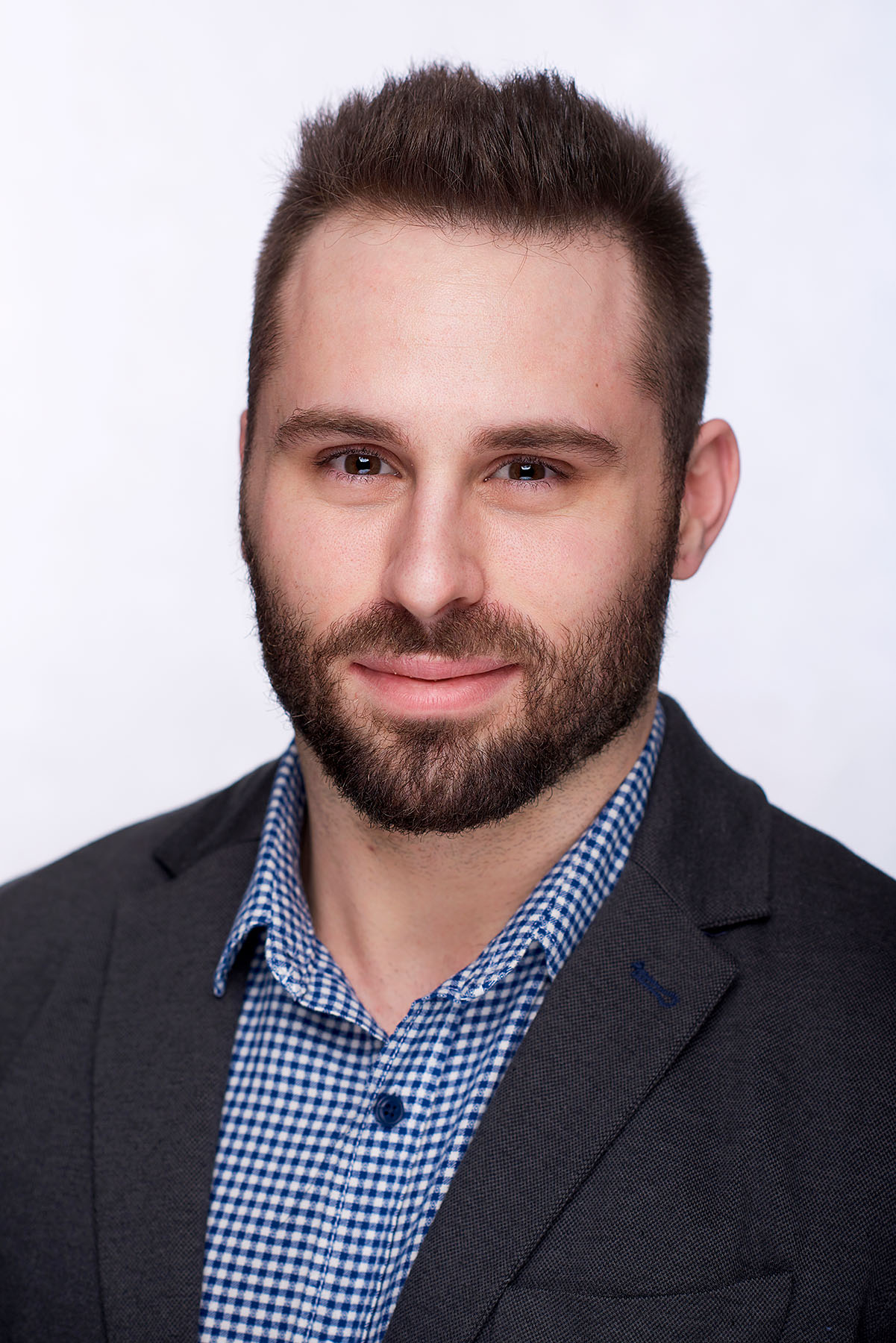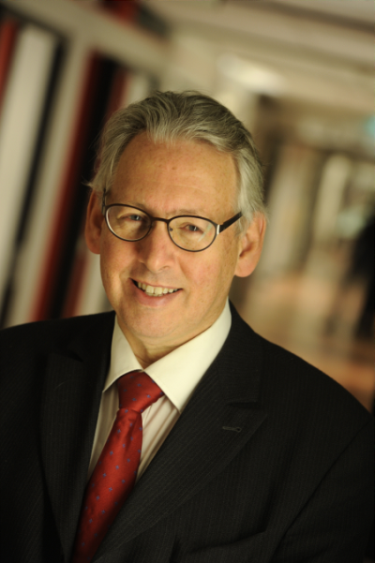Keynotes
Smart Education Prototyping for Digital Transformation and Industry 4.0
Abstract
The ongoing digitization and the increasing number of technological solutions for nearly every aspect of our modern society is influencing the way we live and work. In order to be able to develop and apply smart systems of the future, the education and training of professionals, especially in higher education, has to be reoriented methodically, technologically and contentually. General transformations are specified by digital transformations and Industry 4.0 is accompanied by Working Worlds 4.0 and Education 4.0. The knowledge spiral is turning ever faster between the priorities of research and teaching creating more and more (smart) data and information in an increasingly complex world of development and application. Complexity forces to transdisciplinary and interdisciplinary ways of working and holistic views. The challenge is to react and act with smart approaches in education using new technologies for changing the living environment as well as the lifelong learning. One of the currently most important priorities is the design of smart learning worlds for digital transformation in general and cyber physical systems as kernel of the Industry 4.0 concepts in particular. Smart education prototyping for digital transformation and industry 4.0 is one of the key approaches to the future viability of social systems. What should be the focus now, and in the future, is outlined methodically, technologically and contentually and will be explained by selected examples.
Curriculum Vitae
1982 MSc Industrial Management, 1984 PhD, 1987 Doctor of Science (DSc), 1990 Habilitation. 1988 Associated Professor, Chemnitz University. Since 1994 Full Professor for Business Informatics, West Saxon University of Zwickau. 2003-2009 Dean of the Faculty for economic and business sciences. Since 2009 Dean of Studies. Director of the Institute for New Kinds of Education. Director of the Institutes for Management and Information. Deputy of the main coordinator of the Chinese German University of Applied Sciences / Tongji University Shanghai and member of Senate as well as Scientific Lead Coordinator for Business Administration and Engineering & Scientific Vice Coordinator for Business Administration and Engineering for German University Network Cooperation with Tecnológico de Monterrey. Member of the professional network for Industrial Engineering of the German-Jordanian University (GJU). Visiting professor Russian Sankt Petersburg State University for Technology and Design. Consultant for Strategy IT Development for executive management / DKSH Holding Ltd. Zurich, recent main topic Transformation Management. Supervisor of various international and national research projects. IPC Member and Reviewer for several scientific journals and conferences. Member of the Council of the British Academy of Management (BAM) and Member of the Founding Board of the BAM Continental Chapter. Member of the Board VDI Interdisciplinary Association for Digital Transformation and VDI Advisory Board for Engineering Education. Former Member of the VDI Financial Advisory Committee and of the VDI Scientific Advisory Board as well as the VDI Regional Advisory Council. Acting President of the Federal Institute for supporting scientific and technical service providers. Vice President of the Institute for Knowledge Management. Member of ICDE. Board Member of the German University Network for Distance Education. Member & Fellow of EDEN. Founding member of GUIDE. Member of IACEE. Member of SAE International. Research: Digital Transformation, AR & VR, Innovation Management, Knowledge and Information Management, Project Management, Logistic Management, PLM, Distance Education, e- and mobile Learning, , Educational networks.

Westsächsische Hochschule Zwickau
Institut für Management und Information
Zwickau, Germany
Blade Runner 2049 Vehicles
Abstract
The sequel of the classic neo-noir sci-fi features a wide range of vehicles, those have been actually built and are functional to various extent. The technology may be fake, but design had to be real. How to design real vehicles for a non existing world?
Curriculum Vitae
You can download his full curriculum vitae here in word. ![]()

Budapest University of Technology and Economics
Budapest, Hungary
Does the lone wolf really die? Network Science and Game of Thrones
Abstract
Network science studies various interconnected complex systems, such as biological, technological, and social networks, containing many interacting individuals. Network analysis provides deeper insights about these systems by considering both the properties of the individuals, their relations to their contacts and eventually even to the entire system.
In this presentation I am going to demonstrate this on a case study carried out on the social network of Game of Thrones characters. The aim of this project was to create a predictive, machine learning based model to estimate the probability of death for each still-living major character before the debut of the latest season, i.e. seven. I base this estimation on the characters' position in the social network of the fictional realm. After season seven I compared the model's prediction to the events that happened. Despite it's simplicity, the model performed surprisingly well.
Curriculum Vitae
You can download his full curriculum vitae here in pdf. 

Central European University
Budapest, Hungary
Project Links
- https://www.timeshighereducation.com/news/phd-student-predicts-who-will-die-next-game-thrones
- https://futurism.com/a-researcher-just-made-an-algorithm-to-predict-which-game-of-thrones-characters-will-die
- https://www.gizmodo.com.au/2017/07/machine-learning-predicts-characters-most-likely-to-die-in-game-of-thrones/
Transfer to Immortality a Virtual Alternative to the Singularity
Abstract
The impact of pervasive disruptive technologies on society is profound and challenging. Exponentially emerging technologies have brought about rapid developments in the quality of life for millions of people, have helped to bring about the eradication of many diseases that were primary causes of death in the 20th century and continue to extend life expectancies in the developed world. Ray Kurzweil's vision of "The Singularity" - an immortal man/technology combination is approaching reality
At the same time as technology is rapidly building our understanding of and ability to combat disease and mortality, it is also helping to remove or diminish our daily physical and cognitive challenges through almost instant, ubiquitous access to information and services. In this way, on the one hand technology is helping us to live longer and combat disease but on the other hand it is contributing to the sedentary and hedonistic lifestyles that are responsible for conditions such as obesity, diabetes, cardiovascular disease and sexually transmitted diseases. Today, this paradoxical combination of threatening lifestyle related medical conditions and the use of technology to potentially extend lifespans indefinitely has created a scenario in which public health services which have previously been taken for granted are becoming unsustainable.
The future of the human race is threatened by this scenario of a growing population with extended lifespans and insufficient planetary resources to sustain it.
Transfer to Immortality extrapolates this scenario to 2045 when the baby boomer generation are reaching their 100th year and suggests a radical solution for society and technology to co-evolve and create a sustainable future in which human beings living on a planet with finite resources have the potential to become immortal. The virtual alternative to Ray Kurzweil's "Singularity" involves human beings exchanging their human bodies for their virtual selves with immortal personalities and behaviours based on data collected in the cloud over their lifetime.
Curriculum Vitae
Futurologist, Technology Strategist, Serial Entrepreneur, Business Adviser, Freelance Consultant, Keynote Speaker, Writer, Entertainer, Gamification Guru, 360 Video Pioneer, Thought Leader, Drone Pilot, Imagineer, Lover of Life, Business Coach, Mentor, Facilitator, Early Adopter, Guitar Hero, Broadcaster, Photographer, Visionary, Philosopher, Pragmatist, Innovator, Optimist - these are the roles and attributes I aspire to.
- Founder and CEO GAETSS ‐ www.gaetss.com
- President of the European Chapter of the International Society of Digital Medicine (ISDM) ‐ www.isdm.eu
- Founder and CEO of 360in360 Immersive Experiences ‐ www.360in360ix.co.uk

FRSA, Coventry University
coventry, United Kingdom
Identity in the Mediated Network Society
Abstract
“ Being connected” soon suggests that one’s entire surrounding world is connected at all levels as well. Social media in addition to the mass media provoke the syndrome of the panopticum; one person can see all other persons from his/her couch. In terms of ubiquity and virtuality this connotation is of course obsolete as for the majority of social media citizens, both the fan in and fan out is several hundreds of “ friends” typically. Still the mobile connectedness lets an additional trend in “ belongingness” sneak in: the feeling to be unique and morally “ready to act”. This “ readiness” promotes a growing proportion of youngsters to adhere to ideologies even if they don’t fit to those in the peer group and one’s parents. This keynote highlights the growing need for web-based communities, rather than just being immersed in social networks. Indicative examples will be demonstrated on how virtuality may be augmented by vicarious participation in a constructivist mood.
Curriculum Vitae
You can view his CV following this link http://www.pietkommers.nl/

Professor of UNESCO Learning Technologies
The Netherlands

